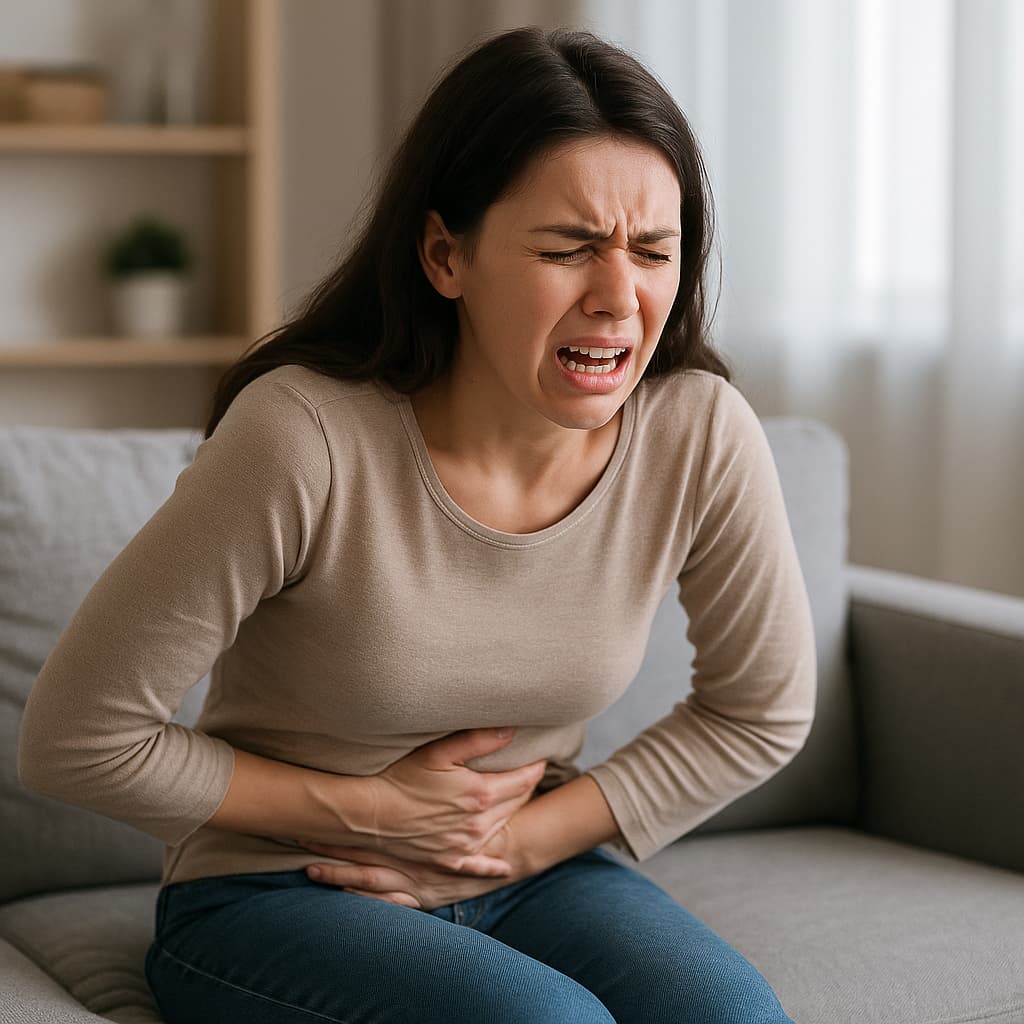Peptic ulcers are painful sores that develop in the lining of the stomach, lower esophagus, or upper part of the small intestine. These sores can cause burning pain, indigestion, and in some cases, serious complications if left untreated.
Understanding their causes, symptoms, treatment options, and prevention strategies can help you manage or avoid this common digestive issue.
But before The News Round The Clock (NRTC) delves deep into peptic ulcers- which affect the digestive system, let’s take a quick look at what ulcer means and the five main types of ulcers that affect humans.
What is an Ulcer?
Ulcers are essentially open sores or wounds, often with a crater-like appearance. They can develop either inside or outside the body and are usually caused by tissue erosion due to various factors. Thankfully, no matter where they show up, most ulcers can be treated effectively.
When we hear the word “ulcer,” we often think of pain, discomfort, and maybe even complicated medical treatments.
ALSO READ
There are 5 types of ulcers:
- Arterial Ulcers (Ischemic Ulcers)
These form due to poor blood circulation, often in the lower legs or feet. When blood flow is restricted, skin tissue can break down, resulting in painful ulcers. - Venous Ulcers
These are among the most common types, typically appearing on the lower legs. They’re also called varicose or stasis ulcers and often result from blood pooling in the veins. - Mouth Ulcers (Canker Sores)
These small, painful sores show up inside the mouth. They’re usually harmless but can be triggered by stress, injury, or certain health conditions. - Genital Ulcers
These appear around the genital or anal area. Causes range from infections to autoimmune diseases. - Peptic Ulcers
These develop inside the digestive tract—specifically the stomach, small intestine, or esophagus—and that’s our main focus today.
Peptic Ulcer: Causes, Symptoms, Treatment, and Prevention
As mentioned sbove, peptic ulcers are painful sores that develop in the lining of the stomach, lower esophagus, or upper part of the small intestine. These sores can cause burning pain, indigestion, and in some cases, serious complications if left untreated. Understanding their causes, symptoms, treatment options, and prevention strategies can help you manage or avoid this common digestive issue.
How Common is It?
Peptic ulcer disease (PUD) affects an estimated 5% to 10% of people worldwide. It’s more commonly found in middle-aged adults and tends to occur more frequently in men than women.
Types of Peptic Ulcers
- Gastric Ulcer
These ulcers form inside the stomach and often cause pain shortly after eating.
- Duodenal Ulcer
Located in the upper part of the small intestine, these ulcers typically cause pain a few hours after meals or during the night.
- Esophageal Ulcer
Less common, these ulcers develop in the esophagus and are often linked to acid reflux.
Common Causes of Peptic Ulcers
Your stomach is designed to handle digestive acids, thanks to its protective mucus lining. But when that defense weakens, ulcers can form. The two main culprits behind peptic ulcers are:
- H. pylori Infection
This common bacterial infection can disrupt your stomach lining, leading to inflammation and eventually ulcers.
- NSAIDs and Ulcers
Nonsteroidal anti-inflammatory drugs like ibuprofen and aspirin can interfere with the stomach’s ability to protect itself, increasing the risk of ulcers.
Stress worsens peptic ulcers
While stress and spicy foods don’t directly cause ulcers, they can worsen existing symptoms or slow down the healing process.
Other less common causes include:
- Stress from severe illness or injury
- Other infections
- Chemotherapy or radiation
- Crohn’s disease
- Zollinger-Ellison syndrome (a rare condition causing excessive stomach acid)
- Ischemia (loss of blood supply)
- Stomach cancer
Recognizing the Symptoms of a Peptic Ulcer
Not everyone with a peptic ulcer experiences symptoms, but when they do occur, they can range from mild to severe. Common signs include:
- Dull, burning, or gnawing abdominal pain (often on an empty stomach)
- Bloating or a feeling of fullness
- Nausea or vomiting
- Unexplained weight loss
- Burping or indigestion
- Appetite changes
- Chest discomfort
Pain often worsens on an empty stomach but may be relieved temporarily after eating or taking antacids.
Red Flags to Watch For:
As mentioned above, not everyone who suffers from a peptic ulcer experiences symptoms until complications occur. However, seek immediate medical attention if you experience:
- Black, tarry stools or blood in your stool
- Vomiting blood or vomit that looks like coffee grounds
- Sudden, sharp abdominal pain
- Dizziness or fainting
- Rapid heartbeat or signs of shock
Risk Factors
You’re more likely to develop a peptic ulcer if:
- You have an H. pylori infection
- You frequently use NSAIDs
- You smoke or drink alcohol
- You’re under prolonged physical stress
- You take certain medications that irritate the stomach
Diagnosing Peptic Ulcers: What to Expect
If you suspect a peptic ulcer, your doctor may order:
- Endoscopy: A thin camera is inserted to view the stomach lining directly.
- Breath, stool, or blood tests to detect H. pylori.
- Imaging tests like X-rays or CT scans to locate the ulcer or rule out complications.
- Barium swallow: X-ray imaging after drinking a barium solution to highlight ulcers.
How Are Peptic Ulcers Treated?
Treatment focuses on healing the ulcer and preventing complications.
Medications for Ulcer Treatment
- Proton pump inhibitors (PPIs): Reduce stomach acid production
- Antibiotics: Used to eliminate H. pylori bacteria
- Antacids: Provide short-term relief
- H2 blockers: Decrease acid production
For complicated ulcers, procedures like endoscopic cauterization or surgery may be necessary if the ulcer is bleeding or causing blockages.
Natural Remedies for Peptic Ulcer Relief
- Probiotics: Help restore gut health
- Honey: Has antibacterial properties that prevent the growth of ulcer-causing H. pylori bacteria
- Licorice root or cabbage juice: May help protect the stomach lining
- Camomile tea: an old-time favourite for soothing stomach inflammation.
- Peppermint: an anti-inflammation remedy that relieves pain and helps you heal.
- Turmeric: protects the gastrointestinal lining and also reduces wind.
- Pineapple: a good source of glutamine that can also be eaten instead of cabbage.
- Onions: contain sulphur compounds that may help to neutralize H. pylori.
- Herbal teas like calendula, marshmallow, and meadowsweet help soothe irritated mucous membranes.
- Inner bark of slippery elm, flax seeds, and aloe vera juice.
Always consult a healthcare provider before trying natural remedies.
Best Foods for Stomach Ulcer Relief
A healthy diet can support healing and reduce discomfort. Recommended foods include:
- High-fiber fruits and vegetables
- Yogurt and other probiotics
- Lean protein sources like fish and chicken
- Whole grains and healthy fats
Avoid spicy foods, alcohol, caffeine, and acidic items that can irritate your stomach.
How to Prevent Peptic Ulcers Naturally
- Limit NSAID use.
- Avoid smoking and excessive alcohol consumption.
- Manage stress through relaxation techniques.
- Practice good hygiene to reduce H. pylori infection risk.
- Eat balanced meals regularly.
- Practice deep breathing, meditate, listen to soothing music, do yoga, and inhale calming scents.
Living with Peptic Ulcers
Dietary Tips
While food doesn’t cause ulcers, some items may aggravate symptoms. It’s best to avoid spicy, acidic foods and limit caffeine or alcohol.
Medication Awareness
Always consult your doctor before taking over-the-counter painkillers or supplements, especially if you’ve had ulcers in the past.
Antacids Help
Antacids may relieve symptoms temporarily but won’t cure the ulcer. You’ll still need a proper diagnosis and treatment plan.
When to See a Doctor for Ulcer Pain
If you’re experiencing ongoing stomach pain, indigestion, or any of the warning signs mentioned above, don’t wait.
Early diagnosis and treatment are key to preventing complications like internal bleeding or perforation.
Final Thoughts
Peptic ulcers may sound intimidating, but with early detection and the right treatment, they’re highly manageable. Your body is equipped with defenses—but when those are compromised, it’s important to take action. Whether it’s from bacteria, medication, or lifestyle factors, knowing the cause is key to effective treatment.
Don’t ignore the signs. Your gut health is essential—listen to your body, and talk to a healthcare provider if something feels off.







